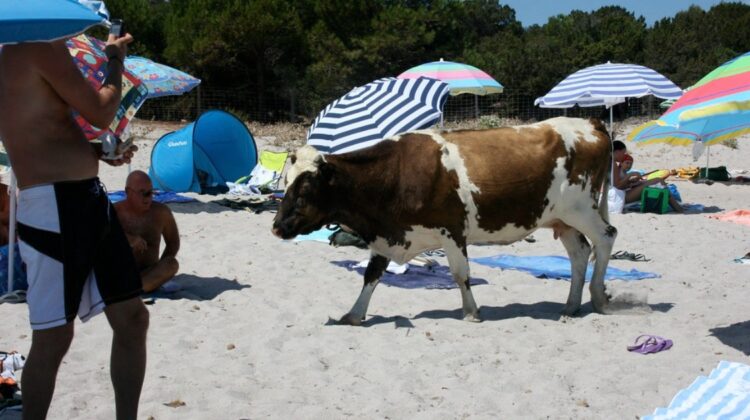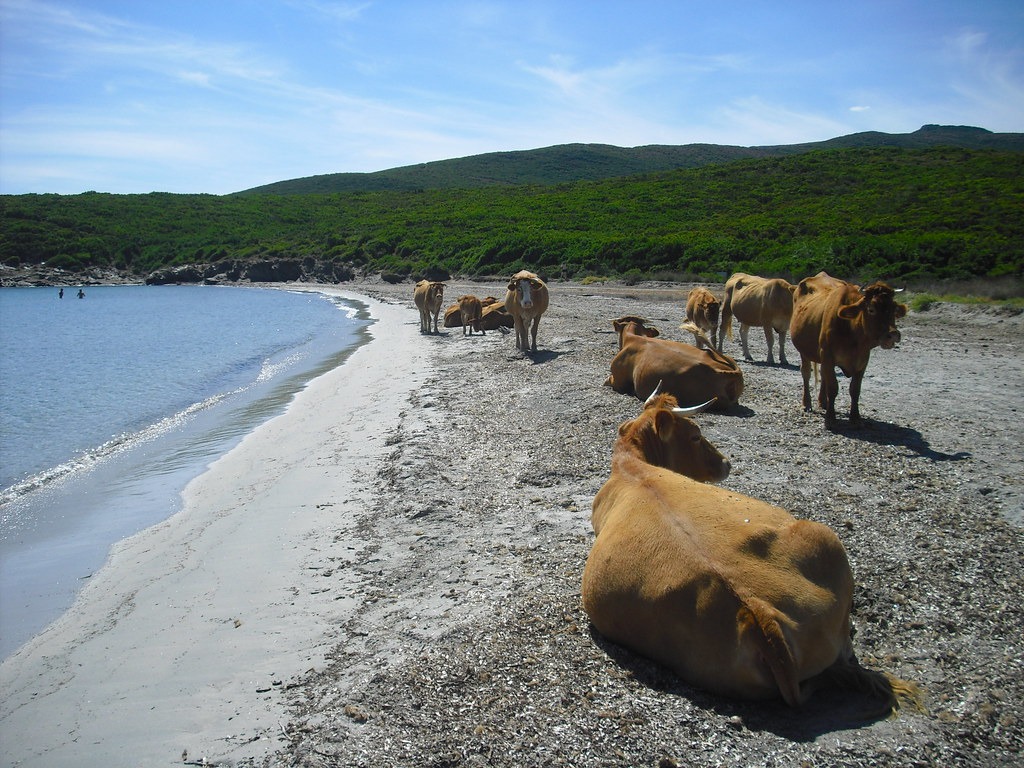
Corsica, known for its pristine beaches and natural beauty, is facing an unexpected challenge this summer as cows have taken over the sandy shores, leading to alarming incidents of aggression towards tourists. With approximately 15,000 cows roaming the island, half of them wild and the rest belonging to local farmers with grazing rights, it’s not uncommon for cows to share space with beachgoers during the summer. However, this year’s bovine population seems unusually headstrong, likely a result of the lockdown months that preceded their summer sojourn.

The Times of London reported that the cows’ behavior has turned aggressive, with tourists falling victim to their menacing demeanor. In one instance, a man was hospitalized after being gored in the neck at a beach in Lotu. In another chilling encounter, a herd of cows chased tourists down a busy street, creating chaos and fear. In the mountain village of Lozzi, a 70-year-old woman was severely wounded by a cow while simply hanging out her laundry.
Local mayors are deeply concerned about the escalating situation. They find themselves powerless to intervene as the cows, often regarded as folklore by tourists, turn into real pests causing havoc and posing genuine danger. Near Ajaccio in Southern Corsica, authorities were compelled to close beaches after rampaging cattle damaged cars, private property, and disrupted picnics.
Ange-Pierre Vivoni, president of the association of mayors of Haute-Corse, the northern region of the island, stated that the problem is persisting and getting worse. Recently, a cow that gored a council employee was shot dead by the mayor of a southern village.
Corsica has previously witnessed similar incidents, like in 2017 when a female tourist attempting to take a photo with the cows was gored in the face, necessitating medical attention. To mitigate such encounters, warning signs have been erected on beaches, reminding people that cows are wild animals and should not be approached closely.

Forbes suggests that part of the problem may be linked to changes in EU agricultural policy, where recent subsidy adjustments have incentivized cattle ownership, leading to increased purchases by farmers. Similar issues might be seen in the Alps and Pyrenees regions. Officials advise tourists to maintain a safe distance from these animals, especially if they are accompanied by calves.

The situation remains a significant concern for both locals and visitors, demanding thoughtful management and potential long-term solutions. The once serene and idyllic Corsican beaches now present a cautionary tale of cohabitation between tourists and the newfound headstrong herds. As the island grapples with this unexpected challenge, finding a balance between preserving nature and ensuring safety for all is of utmost importance.

Leave a Reply